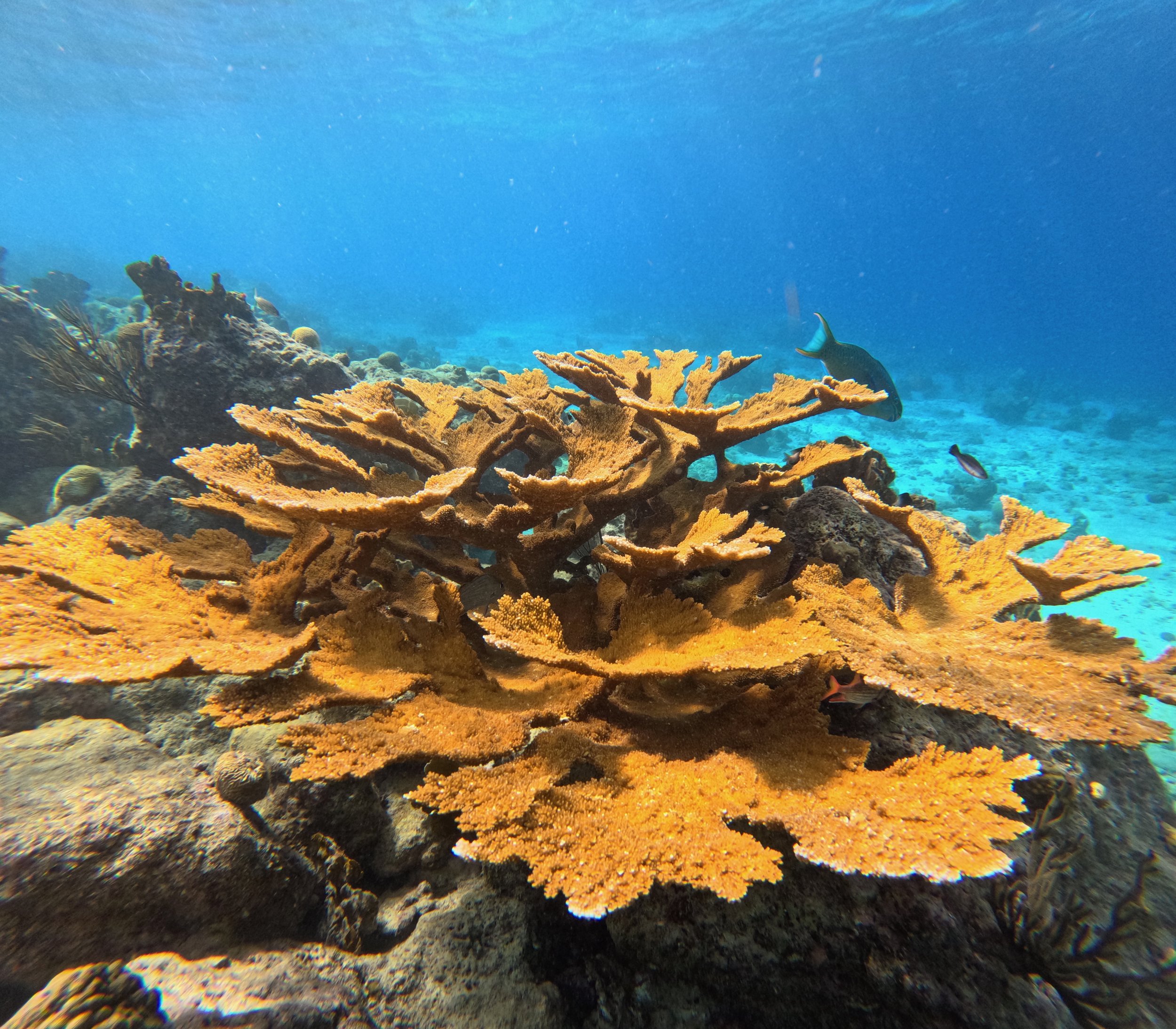Acropora cervicornis - The Elkhorn Coral - An endangered species pictured on one of our field trips to the island of Curcao.
About Coral Reefs
Coral reefs are some of the most biologically diverse ecosystems on earth. They are teaming with macro and microorganisms that collectively produce some of the most visually beautiful places on the planet. Corals are an endosymbiotic organism that produce their own calcium carbonate skeleton to live on and host a symbiotic alga within their cells. The coral host, dinoflagellate alga, and a consortium of microorganisms live in syntrophy as one of biology’s most ancient organisms.
Recently, reefs have been intensively studied by biologists due to their worldwide decline. Overfishing, global warming and microbialization are contributing to the decline of reefs all over the tropical seas. Management plans are needed to identify which corals are more resistant to change in order to preserve them and reefs for generations to come.
Our lab has pioneered methods for analyzing the metabolome of coral reefs and are integrating that data with other multi-omics approaches. These holobionts have a highly diverse chemical repertoire, but we have little understanding of what these molecules are and how they relate to coral health.



